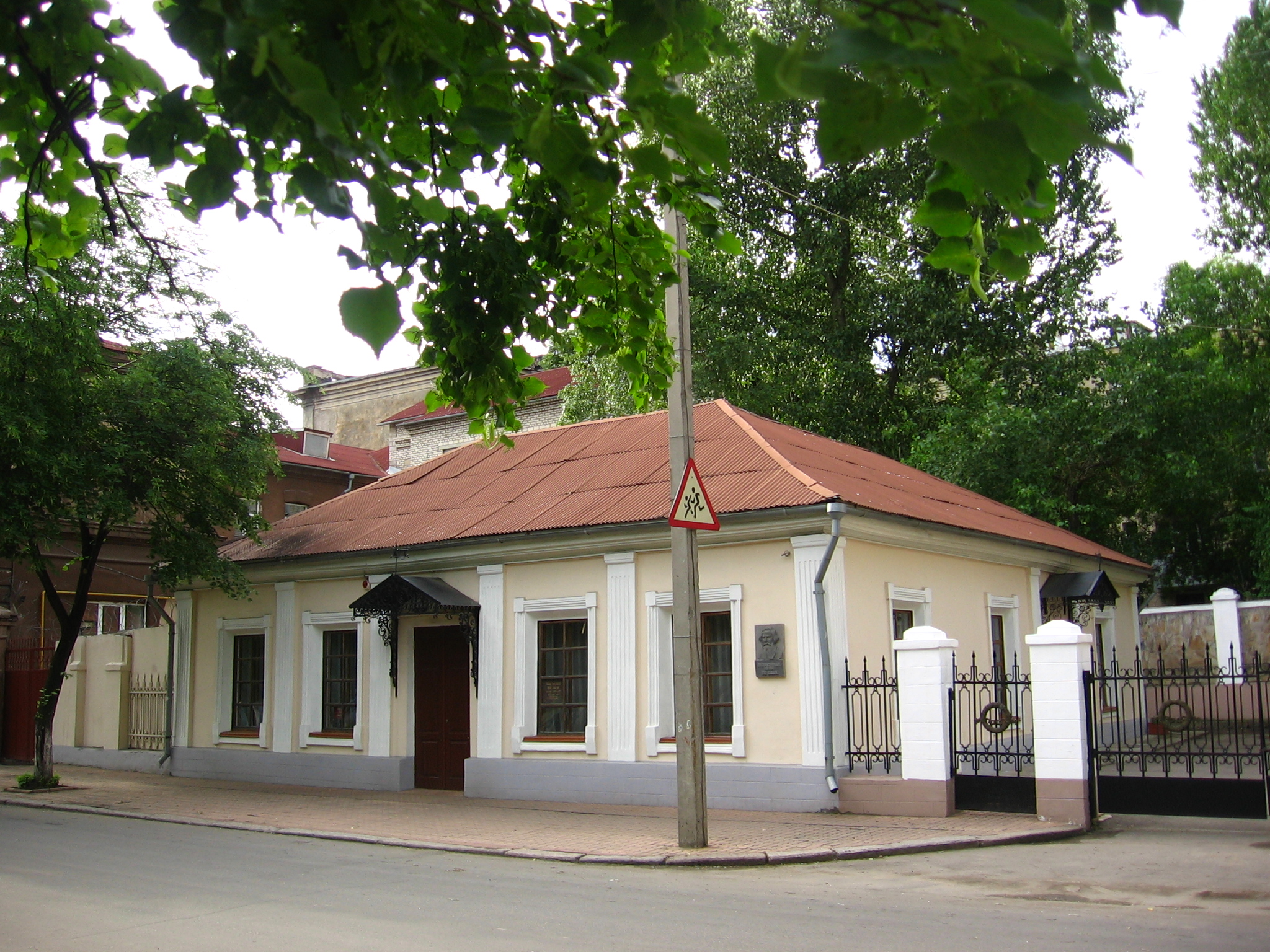|
Russian Proverbs
Russian proverbs originated in oral history and written texts dating as far back as the 12th century. The Russian language is replete with many hundreds of proverbs (пословица ) and sayings (поговорка ). The proverbs express a universal concept, have a moral lesson and provide an insight into many aspects of history, culture, and national character of the people who created them. By the 17th century, the proverbs were collected and documented. They were studied in the 19th and 20th centuries. Vladimir Dal was a famous lexicographer of the Russian Empire whose collection was published in Russian language in the late 19th century as ''The Sayings and Bywords of the Russian People,'' featuring more than 30,000 entries. They continue to endure in modern literature and folklore. Evidence of this is seen in the collection of Russian anti-proverbs collected by Reznikov.Reznikov, Andrey. 2009. ''Old Wine in New Bottles. Modern Russian Anti-Proverbs.'' Proverbium Suppl ... [...More Info...] [...Related Items...] OR: [Wikipedia] [Google] [Baidu] |
Oral History
Oral history is the collection and study of historical information about individuals, families, important events, or everyday life using audiotapes, videotapes, or transcriptions of planned interviews. These interviews are conducted with people who participated in or observed past events and whose memories and perceptions of these are to be preserved as an aural record for future generations. Oral history strives to obtain information from different perspectives and most of these cannot be found in written sources. ''Oral history'' also refers to information gathered in this manner and to a written work (published or unpublished) based on such data, often preserved in archives and large libraries.oral history. (n.d.) The Columbia Electronic Encyclopedia®. (2013). Retrieved March 12, 2018 from https://encyclopedia2.thefreedictionary.com/oral+history Knowledge presented by Oral History (OH) is unique in that it shares the tacit perspective, thoughts, opinions and understanding of the ... [...More Info...] [...Related Items...] OR: [Wikipedia] [Google] [Baidu] |
Vladimir Dal
Vladimir Ivanovich Dal ( rus, Влади́мир Ива́нович Даль, p=vlɐˈdʲimʲɪr ɨˈvanəvʲɪdʑ ˈdalʲ; November 22, 1801 – October 4, 1872) was a noted Russian-language lexicographer, polyglot, Turkologist, and founding member of the Russian Geographical Society. During his lifetime he compiled and documented the oral history of the region that was later published in Russian and became part of modern folklore. Early life Vladimir Dal's father was a Danish physician named Johan Christian von Dahl (1764 – October 21, 1821), a linguist versed in the German, English, French, Russian, Yiddish, Latin, Greek and Hebrew languages. His mother, Julia Adelaide Freytag, had German and probably French (Huguenot) ancestry; she spoke at least five languages and came from a family of scholars. The future lexicographer was born in the town of Lugansky Zavod (present-day Luhansk, Ukraine), in Novorossiya - then under the jurisdiction of Yekaterinoslav Governorate, part ... [...More Info...] [...Related Items...] OR: [Wikipedia] [Google] [Baidu] |
Category:Russian Proverbs ...
Proverbs Russian Russian(s) refers to anything related to Russia, including: *Russians (, ''russkiye''), an ethnic group of the East Slavic peoples, primarily living in Russia and neighboring countries *Rossiyane (), Russian language term for all citizens and peo ... [...More Info...] [...Related Items...] OR: [Wikipedia] [Google] [Baidu] |
Russian Proverbs
Russian proverbs originated in oral history and written texts dating as far back as the 12th century. The Russian language is replete with many hundreds of proverbs (пословица ) and sayings (поговорка ). The proverbs express a universal concept, have a moral lesson and provide an insight into many aspects of history, culture, and national character of the people who created them. By the 17th century, the proverbs were collected and documented. They were studied in the 19th and 20th centuries. Vladimir Dal was a famous lexicographer of the Russian Empire whose collection was published in Russian language in the late 19th century as ''The Sayings and Bywords of the Russian People,'' featuring more than 30,000 entries. They continue to endure in modern literature and folklore. Evidence of this is seen in the collection of Russian anti-proverbs collected by Reznikov.Reznikov, Andrey. 2009. ''Old Wine in New Bottles. Modern Russian Anti-Proverbs.'' Proverbium Suppl ... [...More Info...] [...Related Items...] OR: [Wikipedia] [Google] [Baidu] |
Proverbium
''Proverbium: Yearbook of International Proverb Scholarship'' is an academic journal covering paremiology, the study of proverbs. Each volume includes articles on proverbs and proverbial expressions, book reviews, a bibliography of recent proverb scholarship, and a list of recently (re)published proverb collections. Volumes 1:1984 to 4:1987 were issued by the Ohio State University, in cooperation with the University of Vermont and The Hebrew University of Jerusalem. Volumes 5:1988 to 38:2021 were published exclusively by the University of Vermont. Volumes 1:1984 to 38:2021 of Proverbium were printed (). Many of the back issues of ''Proverbium'' are freely available online at HathiTrust. All volumes are now available on ''Proverbium's'' archive on the journal's website. Wolfgang Mieder, a distinguished professor of German and folklore at the University of Vermont, is the founding editor of ''Proverbium: Yearbook of International Scholarship'' and served as editor-in-chief unti ... [...More Info...] [...Related Items...] OR: [Wikipedia] [Google] [Baidu] |
Anti-proverb
An anti-proverb or a perverb is the transformation of a standard proverb for humorous effect. Paremiologist Wolfgang Mieder defines them as "parodied, twisted, or fractured proverbs that reveal humorous or satirical speech play with traditional proverbial wisdom". Anti-proverbs are ancient, Aristophanes having used one in his play ''Peace'', substituting κώẟων "bell" (in the unique compound "bellfinch") for κύων "bitch, female dog", twisting the standard and familiar "The hasty bitch gives birth to blind" to "The hasty bellfinch gives birth to blind". Anti-proverbs have also been defined as "an allusive distortion, parody, misapplication, or unexpected contextualization of a recognized proverb, usually for comic or satiric effect".p. xi, Charles Clay Doyle, Wolfgang Mieder, & Fred Shapiro. ''The Dictionary of Modern Proverbs''. New Haven: Yale University Press. To have full effect, an anti-proverb must be based on a known proverb. For example, "If at first you don't s ... [...More Info...] [...Related Items...] OR: [Wikipedia] [Google] [Baidu] |
Folklore
Folklore is shared by a particular group of people; it encompasses the traditions common to that culture, subculture or group. This includes oral traditions such as tales, legends, proverbs and jokes. They include material culture, ranging from traditional building styles common to the group. Folklore also includes customary lore, taking actions for folk beliefs, the forms and rituals of celebrations such as Christmas and weddings, folk dances and initiation rites. Each one of these, either singly or in combination, is considered a folklore artifact or traditional cultural expression. Just as essential as the form, folklore also encompasses the transmission of these artifacts from one region to another or from one generation to the next. Folklore is not something one can typically gain in a formal school curriculum or study in the fine arts. Instead, these traditions are passed along informally from one individual to another either through verbal instruction or demonstr ... [...More Info...] [...Related Items...] OR: [Wikipedia] [Google] [Baidu] |
Russian Empire
The Russian Empire was an empire and the final period of the Russian monarchy from 1721 to 1917, ruling across large parts of Eurasia. It succeeded the Tsardom of Russia following the Treaty of Nystad, which ended the Great Northern War. The rise of the Russian Empire coincided with the decline of neighbouring rival powers: the Swedish Empire, the Polish–Lithuanian Commonwealth, Qajar Iran, the Ottoman Empire, and Qing China. It also held colonies in North America between 1799 and 1867. Covering an area of approximately , it remains the third-largest empire in history, surpassed only by the British Empire and the Mongol Empire; it ruled over a population of 125.6 million people per the 1897 Russian census, which was the only census carried out during the entire imperial period. Owing to its geographic extent across three continents at its peak, it featured great ethnic, linguistic, religious, and economic diversity. From the 10th–17th centuries, the land ... [...More Info...] [...Related Items...] OR: [Wikipedia] [Google] [Baidu] |
Lexicographer
Lexicography is the study of lexicons, and is divided into two separate academic disciplines. It is the art of compiling dictionaries. * Practical lexicography is the art or craft of compiling, writing and editing dictionaries. * Theoretical lexicography is the scholarly study of semantic, orthographic, syntagmatic and paradigmatic features of lexemes of the lexicon (vocabulary) of a language, developing theories of dictionary components and structures linking the data in dictionaries, the needs for information by users in specific types of situations, and how users may best access the data incorporated in printed and electronic dictionaries. This is sometimes referred to as 'metalexicography'. There is some disagreement on the definition of lexicology, as distinct from lexicography. Some use "lexicology" as a synonym for theoretical lexicography; others use it to mean a branch of linguistics pertaining to the inventory of words in a particular language. A person de ... [...More Info...] [...Related Items...] OR: [Wikipedia] [Google] [Baidu] |
Robert L
The name Robert is an ancient Germanic given name, from Proto-Germanic "fame" and "bright" (''Hrōþiberhtaz''). Compare Old Dutch ''Robrecht'' and Old High German ''Hrodebert'' (a compound of '' Hruod'' ( non, Hróðr) "fame, glory, honour, praise, renown" and ''berht'' "bright, light, shining"). It is the second most frequently used given name of ancient Germanic origin. It is also in use as a surname. Another commonly used form of the name is Rupert. After becoming widely used in Continental Europe it entered England in its Old French form ''Robert'', where an Old English cognate form (''Hrēodbēorht'', ''Hrodberht'', ''Hrēodbēorð'', ''Hrœdbœrð'', ''Hrœdberð'', ''Hrōðberχtŕ'') had existed before the Norman Conquest. The feminine version is Roberta. The Italian, Portuguese, and Spanish form is Roberto. Robert is also a common name in many Germanic languages, including English, German, Dutch, Norwegian, Swedish, Scots, Danish, and Icelandic. It can be use ... [...More Info...] [...Related Items...] OR: [Wikipedia] [Google] [Baidu] |
Russian Language
Russian (russian: русский язык, russkij jazyk, link=no, ) is an East Slavic languages, East Slavic language mainly spoken in Russia. It is the First language, native language of the Russians, and belongs to the Indo-European languages, Indo-European language family. It is one of four living East Slavic languages, and is also a part of the larger Balto-Slavic languages. Besides Russia itself, Russian is an official language in Belarus, Kazakhstan, and Kyrgyzstan, and is used widely as a lingua franca throughout Ukraine, the Caucasus, Central Asia, and to some extent in the Baltic states. It was the De facto#National languages, ''de facto'' language of the former Soviet Union,1977 Soviet Constitution, Constitution and Fundamental Law of the Union of Soviet Socialist Republics, 1977: Section II, Chapter 6, Article 36 and continues to be used in public life with varying proficiency in all of the post-Soviet states. Russian has over 258 million total speakers worldwide. ... [...More Info...] [...Related Items...] OR: [Wikipedia] [Google] [Baidu] |
Moral Character
Moral character or character (derived from charaktêr) is an analysis of an individual's steady moral qualities. The concept of ''character'' can express a variety of attributes, including the presence or lack of virtues such as empathy, courage, fortitude, honesty, and loyalty, or of good behaviors or habits; these attributes are also a part of one's soft skills. Moral character primarily refers to the collection of qualities that differentiate one individual from anotheralthough on a cultural level, the group of moral behaviors to which a social group adheres can be said to unite and define it culturally as distinct from others. Psychologist Lawrence Pervin defines moral character as "a disposition to express behavior in consistent patterns of functions across a range of situations". Same as, the philosopher Marie I. George refers to moral character as the "sum of one’s moral habits and dispositions". Aristotle has said, "we must take as a sign of states of character the p ... [...More Info...] [...Related Items...] OR: [Wikipedia] [Google] [Baidu] |





